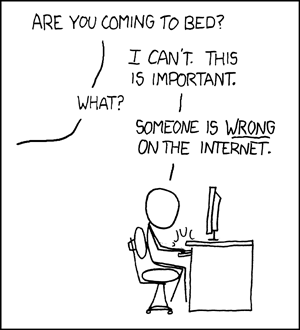Bad topic for a Monday but I could use some insight from someone in your field.
A neighbor from a few houses down committed suicide Sat night. The victim, Jim, was a great guy that everyone liked. Jim and his wife would always be the ones that would have people over on various holidays. They were always great with the kids and would greet your with a kind hello and small talk when passing by while out walking with the dog. If anyone needed help, Jim was always the first to be there. He was retired from the Coast Guard was in great shape for someone in their early 60's and looked like he could enter an Iron man competition. Jim was diagnosed with Alzheimer's a few years ago and apparently had been regressing fairly quickly. Not too long ago while backing his car out, he knocked over a neighbors light pole. They were good friends and even though Jim was very upset with himself everyone else was very understanding of his condition and assured him not to worry. Jim was very social and it was common that they would visit over a neighbor's house and Sat night was no different. They had spent a couple of hours visiting and having a couple of glasses of wine, nothing excessive. The details beyond this are a bit sketchy but apparently he got very angry for reasons unknown that evening and his his wife caught him with a gun in the bedroom while pulling the trigger which did not fire off on the first try. She wrestled the gun away and ran to the phone to call the neighbor over to help and to call 911. By the time she finished dialing and the neighbor came over the bedroom door was locked and they were talking to Jim trying to calm him down. This was all happening fairly quickly and before anyone else could help Jim jumped out of the 2nd story bedroom and shot himself in the back yard with another gun.
The question I have while I can understand having an illness like this can cause depression and one to consider ending it before it takes over. There weren't clear signs of depression from those close to him. His actions completely caught the family, friends and neighbors off guard. Is it possible that this disease can trigger such an extreme change so quickly? Or is the better explanation he was good at hiding his thoughts and intentions. Many years ago my grandfather died of Alzheimer's and even though his normal personality was very laid back, I do recall some days he would be furious for no reason and you could see the anger in his eyes. I don't remember hearing talk of potential suicide back then and was curious if you have heard of such events with other people that have suffered from this disease.
A neighbor from a few houses down committed suicide Sat night. The victim, Jim, was a great guy that everyone liked. Jim and his wife would always be the ones that would have people over on various holidays. They were always great with the kids and would greet your with a kind hello and small talk when passing by while out walking with the dog. If anyone needed help, Jim was always the first to be there. He was retired from the Coast Guard was in great shape for someone in their early 60's and looked like he could enter an Iron man competition. Jim was diagnosed with Alzheimer's a few years ago and apparently had been regressing fairly quickly. Not too long ago while backing his car out, he knocked over a neighbors light pole. They were good friends and even though Jim was very upset with himself everyone else was very understanding of his condition and assured him not to worry. Jim was very social and it was common that they would visit over a neighbor's house and Sat night was no different. They had spent a couple of hours visiting and having a couple of glasses of wine, nothing excessive. The details beyond this are a bit sketchy but apparently he got very angry for reasons unknown that evening and his his wife caught him with a gun in the bedroom while pulling the trigger which did not fire off on the first try. She wrestled the gun away and ran to the phone to call the neighbor over to help and to call 911. By the time she finished dialing and the neighbor came over the bedroom door was locked and they were talking to Jim trying to calm him down. This was all happening fairly quickly and before anyone else could help Jim jumped out of the 2nd story bedroom and shot himself in the back yard with another gun.
The question I have while I can understand having an illness like this can cause depression and one to consider ending it before it takes over. There weren't clear signs of depression from those close to him. His actions completely caught the family, friends and neighbors off guard. Is it possible that this disease can trigger such an extreme change so quickly? Or is the better explanation he was good at hiding his thoughts and intentions. Many years ago my grandfather died of Alzheimer's and even though his normal personality was very laid back, I do recall some days he would be furious for no reason and you could see the anger in his eyes. I don't remember hearing talk of potential suicide back then and was curious if you have heard of such events with other people that have suffered from this disease.



